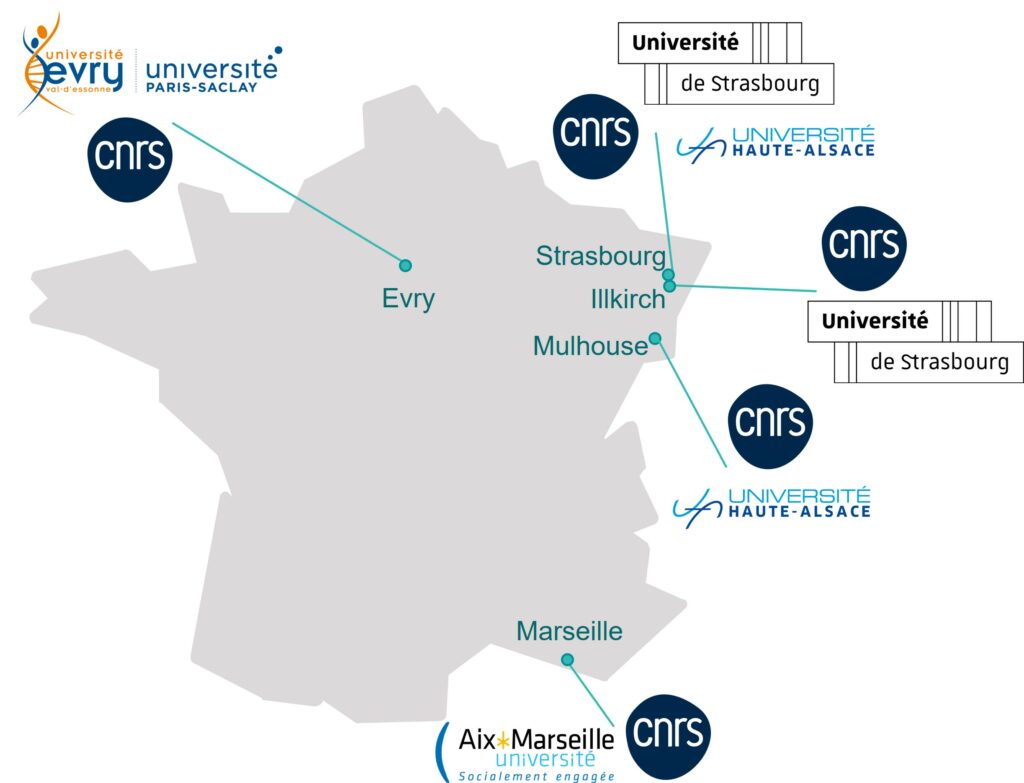
New Polymers as an alternative
Overview
Synthesis and sequencing of digital polymers for mass data storage
Jean-François LUTZ, DR CNRS
The aim of the project is to store data on polymers other than DNA.
The use of synthetic digital polymers is a promising alternative to DNA for molecular data storage. In this project, the molecular structure of these polymers will be optimised to facilitate their writing and reading speed as well as their stability over time. The project partners will also explore ways to create erasable or rewritable digital polymers.
Although several important aspects (writing, reading and storage) have already been demonstrated, synthetic digital polymers have only been discovered very recently. Thus, in order to achieve massive data storage, many scientific and technological challenges still remain to be overcome.
Keywords : polymer chemistry, digital polymers, analytical chemistry, sequencing
Our challenges
Our researches
Accelerating the synthesis of digital polymers
Write polymers faster and increase their length. Select high-yield, ultra-fast reactions for polymer construction. Develop expanded monomer alphabets (i.e., containing more coded symbols than the four DNA bases).
Developing digital polymers libraries
Organise digital polymer libraries in space. Explore different types of materials (microchips, networks, crystals) that can store information in 2D or 3D.
Optimising methods for sequencing synthetic polymers
Read digital polymers quickly and without error. Study non-destructive analytical techniques such as nanopore sequencing. Develop parallel analysis methods enabling high-throughput sequencing.
Writing data stored in polymers
Erase information stored on polymers using thermo- or photo-stimulated processes. Modify or repair information in molecular files. Explore new strategies for obtaining rewritable polymers.
Consortium
CNRS, Université d’Aix-Marseille, Université d’Evry Val d’Essonne, Université de Haute Alsace, Université de Strasbourg
Mobilise the French research community to create an ecosystem dedicated to molecular information storage
Provide new synthesis solutions enabling massive data storage
Secure foundational patents in the field of molecular data storage
A community of 17 researchers and research lecturers, 6 post-doctoral fellows and 7 doctoral students proposed for the duration of the PEPR, as well as the creation of an engineer position and a junior chair.
The Institute of Supramolecular Science and Engineering (ISIS – CNRS, Université de Strasbourg)
Institute of Radical Chemistry (ICR – CNRS, Université Aix-Marseille)
Institut des Matériaux de Mulhouse (IS2M – CNRS, Université de Haute Alsace)
Laboratoire d’Innovation Moléculaire et Applications (LIMA – CNRS, Université de Haute Alsace, Université de Strasbourg)
Laboratoire Analyse, Modélisation, Matériaux pour la Biologie et l’Environnement (LAMBE – CNRS, Université d’Evry Val d’Essonne)
Institute of genetics and molecular and cellular biology (IGBMC – CNRS, Inserm, Université de Strasbourg)
The Hubert Curien pluridisciplinary (IPHC – CNRS, Université de Strasbourg)

